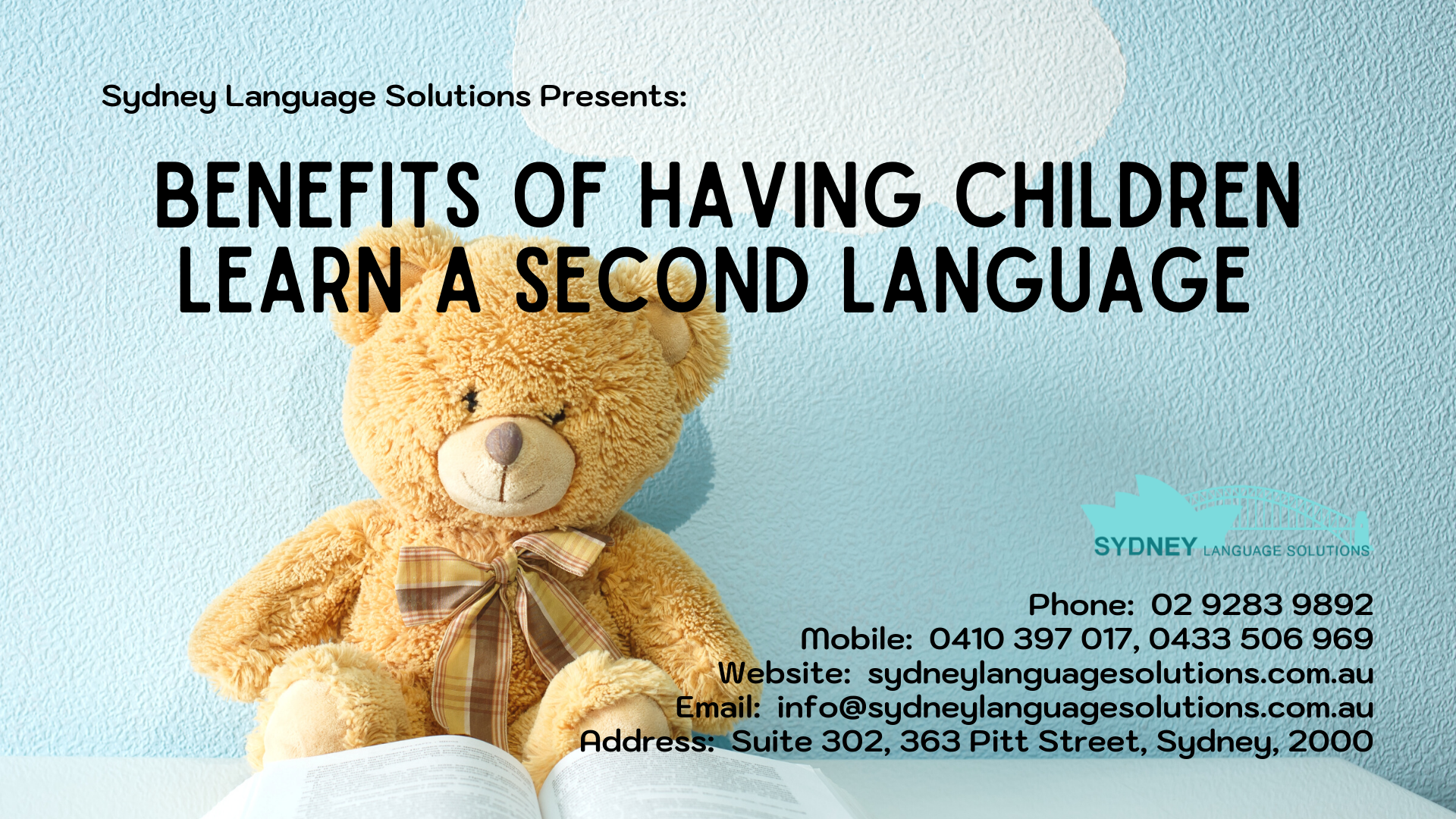Ways on How You Can Help Your Children Learn New Languages Faster
How you can help your child learn new languages faster:
- Make language learning a daily habit. Research shows that your child only needs 15 minutes a day to make progress while learning a new language. Some ways in which you can instill this habit in them is by making them listen to podcasts or watch a movie in a foreign language.
- Learn cognates. Languages like Spanish have a lot of words that we commonly use while speaking English. Learning these words will help your child transition better into the new language.
- Use flashcards and spaced repetition. Flashcards are proven to be the most effective way to memorize new languages. Flashcards use a concept called spaced repetition that basically prioritizes things your child does not know and helps them prioritize and work on their weak areas.
- Use a notebook and take it everywhere. Ask your kids to write down all the relevant vocabulary that you come across whenever your child is exposed to a new language.
- Speak the language from day one. There are 3 ways to achieve this. You can enrol your child in group learning in a good language school. This is great from a social perspective as your child will be studying with kids their own age and they can collaborate and work together on their skills.
This is where we can help you!
At Sydney Language Solutions we offer the best prices and deals for an atmosphere of fun and engagement in which your children can develop their language skills and aim towards a brighter future.
Advantages of Bilingual and Multilingual Children
INTERESTING FACTS ABOUT BILINGUAL/MULTILINGUAL CHILDREN:
– Better academic results: research has shown that bilingual/multilingual children can often concentrate better, have better problem-solving skills, understand language structure better and are better at multitasking.
– More diverse and interesting career opportunities later in life: employees speaking two or more languages can form better connections/relations with clients and other business partners. Therefore, multilingual candidates are preferred by employers.
– Children who speak more than one language have a better sense of self-worth, identity and belonging.
– Bilingual/multilingual children are said to be more educated since they can indulge in reading books written in various languages, enjoy movies and music in different languages.
– Children who learn foreign languages appreciate other cultures more and feel a sense of affinity while communicating with people from other countries.
BENEFITS OF LEARNING A FOREIGN LANGUAGE FOR CAREER GROWTH:
Learning starts at a very young age and learning new languages as a kid not only has a positive impact on your child’s personal growth, but it also gives them an edge in the professional world when they grow up.
Here are some advantages of learning foreign languages as a kid:
- Your kid will automatically become more attractive than other candidates when it comes to Global companies. In this dynamic world of globalization, employers are seeking candidates that are multilingual. International companies are trying t0 widen their reach across the globe and hire employees that can blend in with other cultures and fill in the communication gaps between the company and its clients.
- Career growth opportunities: being fluent in foreign languages doesn’t always mean your kid will have to go abroad. Many small local businesses prefer multilingual candidates who can help them explore new business opportunities and bring in more clients from other countries.
- Higher salaries: research shows that multilingual employees earn at least 10%-15% more than monolingual employees.
- Relationship building: having the ability to speak and understand different languages will allow your child to relate to various cultural groups at a personal level. Having a good relationship with colleagues is essential in a professional environment.
- Increased job opportunities: being fluent in foreign languages can be extremely beneficial for an individual’s professional growth. Many companies now require only employees who are bilingual or multilingual.
Benefits of Having Children Learn a Second Language
Why must children learn a new language from a young age?
- Experts say that children have more time and ability to pick up a new language faster than adults and develop a native-like pronunciation.
- Learning a new language also boosts a child’s creativity, problem-solving, critical thinking, and listening skills.
- In the long run, a second language will also be advantageous for them in the workplace where being multilingual gives one a competitive edge over others.
What makes our program different from other community language schools?
At some community language schools, the programs are designed to be beneficial if only both parents speak that particular native language at home for the children to have a chance to hear and practice the language. While this is advantageous for some children, others with only one parent who speaks language cannot have the chance to hear from their parents’ interaction. In fact, there are numerous households in Sydney with only one bilingual parent. In such circumstances, going to a language class with a structured program will help the students.
At Sydney Language Solutions, we offer language courses for children from all backgrounds, regardless of the number of parents who speak that language at home. These courses are also tailored for children whose parents are second-generation language speakers in Australia, or those parents who do not have enough background knowledge in speaking, reading, and writing their language to teach their children at home.
Moscow metro – a piece of art hidden underground
In most cities the Metro system is just a means of getting from one tourist attraction to another. The Moscow metro is an exception to this rule, it is a tourist attraction in itself. You will find yourself stopping to marvel at some of Moscow’s amazingly ornately designed stations. Carrying an average of 7million passengers per day, it is also Europe’s busiest Metro system.
The Moscow metro is the main and safest transport system in the Russian capital. It is second only to the metro in Tokyo as far as the volume of traffic is concerned. The metro system consists of 12 lines with an overall length of over 298 km, with 180 stations. The first line opened on 15 May 1935. The passengers were immediately impressed by the fairy-tale beauty of the underground palaces, by the amount of light and the lavish decoration of the stations.
No underground in the world has used a synthesis of arts in its décor. The Moscow metro is a really unique architectural and artistic monument. It was the first one in the world to decorate the stations with statues, frescoes, mosaics. It is hard to believe that all this magnificence was practically hand-made. Nevertheless, the result is amazingly beautiful stations, different from one another. Another uniqueness of the Moscow metro is that the construction of new stations is still based on these ideas and principles.This is how it was planned 75 years ago.
Moscow metro was built not only as public transport. In 1930-s the country was already preparing for a possible war. During the Siege of Moscow, in 1941, metro stations were used as air-raid shelters. Many stations built during the Cold War are very deep and were planned as shelters in the event of nuclear attack. The result of this is that the deepest station of the Moscow metro is “Park Pobedy”, 84 meters, the height of a 28-storey building. It’s one of the deepest stations in the world. At the same metro station one can experience the longest escalator (126 m). Standing at the bottom one cannot see the top.
The differences between English and Russian
Russian is part of the Slavonic branch of the Indo-European language family. It is closely related to other Slav languages such as Polish, Czech and Serbo-Croatian. Russian is spoken as a mother tongue by about 150 million people in Russia and the former republics of the USSR.
English and Russian are quite different in some aspects. In particular the grammar systems show significant variations. English has a fairly fixed word order. Meaning is expressed through the addition of words (for example auxiliaries) and movement of words within limited boundaries. Russian, on the other hand, conveys meaning largely through changes in the composition of words (e.g., by inflections or the addition of prefixes and suffixes). Its word order is very fluid. Because of these differences English-speakers may often find learning Russian word order confusing. Word order in Russian largely depends on what a person is willing to make an emphasis on.
Due to differences in the phonological systems, it is to a certain extent challenging for Russians to acquire native-speaker-like standards of pronunciation and intonation. Russian consists of 5 vowel sounds, with no differentiation between short and long vowels. This contrasts with English which has 12 vowel sounds (5 long, 7 short), plus 8 diphthongs. Possibly the most significant vowel difficulty for Russians is the sound in her / cur. This sound seems to cause especial difficulties in words beginning with /w/, such as were / work / worth. Other vowel problems include a difficulty discriminating between the sounds in sat / set or sit / seat.On the other hand, the main challenge for English speakers in learning Russian represent such letters as: “э”, “й”, “щ” and especially the letter “ы” along with the “soft sign” (ь) and the “hard sign” (ъ). The latter do not designate any sounds but make the preceding consonant sound either softer or harder. Another phonological problem which potentially may cause learning difficulties with English-speakers is a “strong” Spanish-like sound “r”. This is due to the fact that “r” in English is reduced.
Russian Literature
Russian literature is considered to be among the most influential and developed in the world, with some of the most literary works known worldwide. Russia’s literature dates back to the 10th century, but the peak of its development was in the 18th century and was boosted by the works of Mikhail Lomonosov followed by the literature of the 19th century. This period is called “Golden Age of Russian Literature” which began with Alexander Pushkin who is considered to be the founder of the Russian Literature and often called the “Russian Shakespeare” or the “Russian Goethe”.Its fast development continued further in the 19th century with the poetry of Mikhail Lermontov, world-famous dramas of Anton Chekhov, and the prose of such prominent figures in the literature of all times as Nikolai Gogol, Ivan Turgenev, Leo Tolstoy, Fyodor Dostoyevsky and many others. Tolstoy and Dostoyevsky in particular are the most eminent writers and often described as the greatest novelists ever.
But this is only one facet of Russian literature. The age of the great novelists was over and short fiction and poetry became the dominant genres of Russian literature for the next several decades. The subsequent era of Russian literature is called “The Silver Age” which began in 1880 and continued till the beginning of the Russian Revolution. Leading writers of this Age include Aleksandr Blok, Anna Akhmatova, Marina Tsvetaeva, Ivan Bunin, Maxim Gorky and many others.
But even after the Revolution, throughout the extremely hard period of Stalin’s regime and after it Russian literature did not cease to develop and flourish. Unfortunately, many of the prominent writers, for instance Vladimir Nabokov had to leave the country. By the 1970s and 1980s restrictions on literature were to some extent eased which provided a favourable base for the emergence of myriad of talented Soviet authors as: Vladimir Mayakovsky, Ilf and Petrov, Mikhail Bulgakov, Boris Pasternak, Mikhail Sholokhov andAleksandr Solzhenitsyn.
Many modern Hollywood and not only films are based on the plots of Russian classical literature such as for example: “Anna Karenina” by Tolstoi, “Crime and Punishment” by Dostoevsky, “Doctor Zhivago” by Pasternak and many others.
RussianTeacher, VladKibardin






Latest Comments